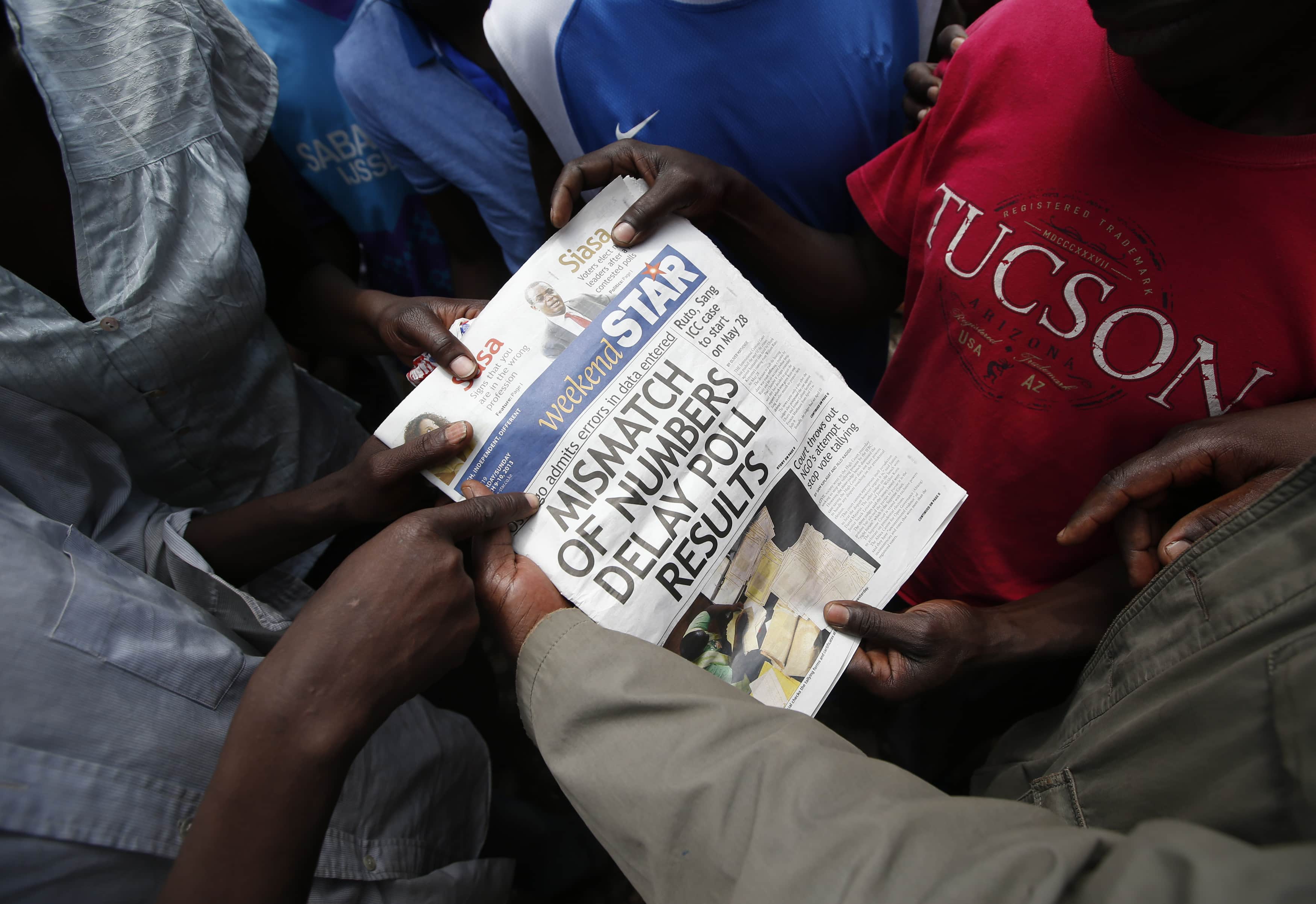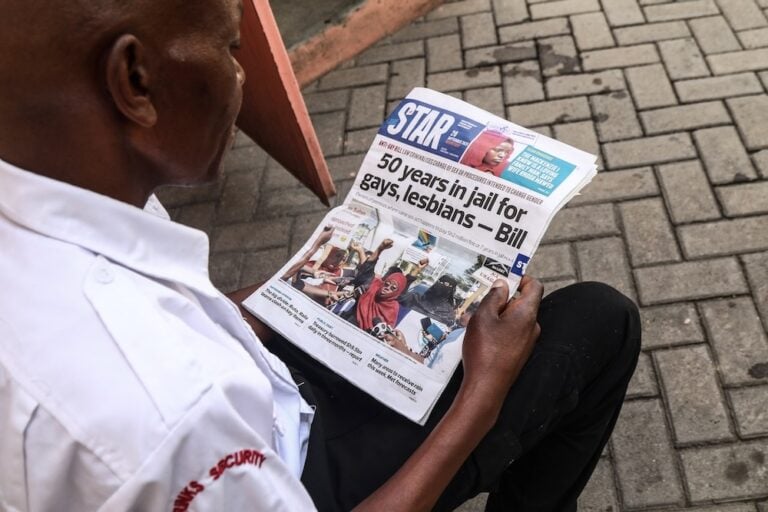The Information and Communications Bill would impose fines of up to US $235,000 on media groups who breach a code of conduct, while the Media Council Bill would allow content to be banned if it is considered "prejudicial to public or national interest."
Thirty minutes was all it took. On Thursday, 31 October, 60 Members of Parliament debated and then passed the highly contentious Kenya Information and Communications (Amendment) Bill, 2013.
According to the International Press Institute (IPI), the new bill puts reporters and news organisations at risk of being penalized for breaking the Code of Conduct for the Practice of Journalism – a document that would be created by a new government-appointed Communications and Multimedia Tribunal. The consequences for breaching the yet-to-be-written Code of Conduct are not trivial. Human Rights Watch reports that journalists could be fined up to 1 million Kenyan Shillings (US $12,000) for their actions, while media houses would have to pay up to 20 million Kenyan Shillings (US $235,000).
What’s even more troubling is that penalties could be imposed in response to anonymous complaints. According to Tom Rhodes, East Africa representative for the Committee to Protect Journalists (CPJ), this means that if a reporter writes a story criticizing an official “…that same official could file an anonymous complaint to an impartial government tribunal who could then blacklist and fine the journalist into silence.”
The bill further permits authorities to seize the accreditations, properties and assets of media houses and journalists to pay fines – meaning that this imposed “silence” could be permanent. Many media houses would not be able to afford the cost of an individual fine with the totality of their annual revenue. David Ohito, the deputy chairman of Kenya’s Editors’ Guild, told Rhodes, “Given that Kenyan media houses make on average 1.2 million Kenyan shillings per year [approximately US $14,000], all would go under [with this bill].”
But fines would not be the only threat to the economic sustainability of media outlets under the new law. BBC News reports that under The Information and Communications Bill, at least 45% of radio and television content, advertising included, must be produced locally.
There is hope, however. On 6 November, Reporters Without Borders noted that the minister of information and communication announced the creation of a “contact group”, including all media sector representatives, to discuss the bill’s constitutionality. Furthermore, on 12 November, IPI cited reports that said President Uhuru Kenyatta will not sign the current bill into law, noting that it contradicts constitutional protections for press freedom.
Nevertheless, Human Rights Watch cautions that, even without the support of the president, Parliament would be able to force the bill through with a two-thirds majority.
To complicate matters further, another restrictive media bill is currently in the works. The Media Council Bill would allow the government to ban any media content it considers to be “prejudicial to public or national interest,” according to Human Rights Watch.
“The bill lacks a clear definition of what constitutes national or public interest, which means that this provision could be used to censor material without any checks on the council’s discretion,” Human Rights Watch notes in its 12 November press release.
Reporters Without Borders echoed this sentiment, noting that “security must not be used as a pretext for gagging the media.”
According to Amnesty International, both bills have been scheduled for debate in Parliament this week, although no specific dates have been reported.



